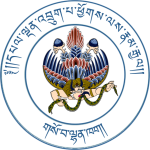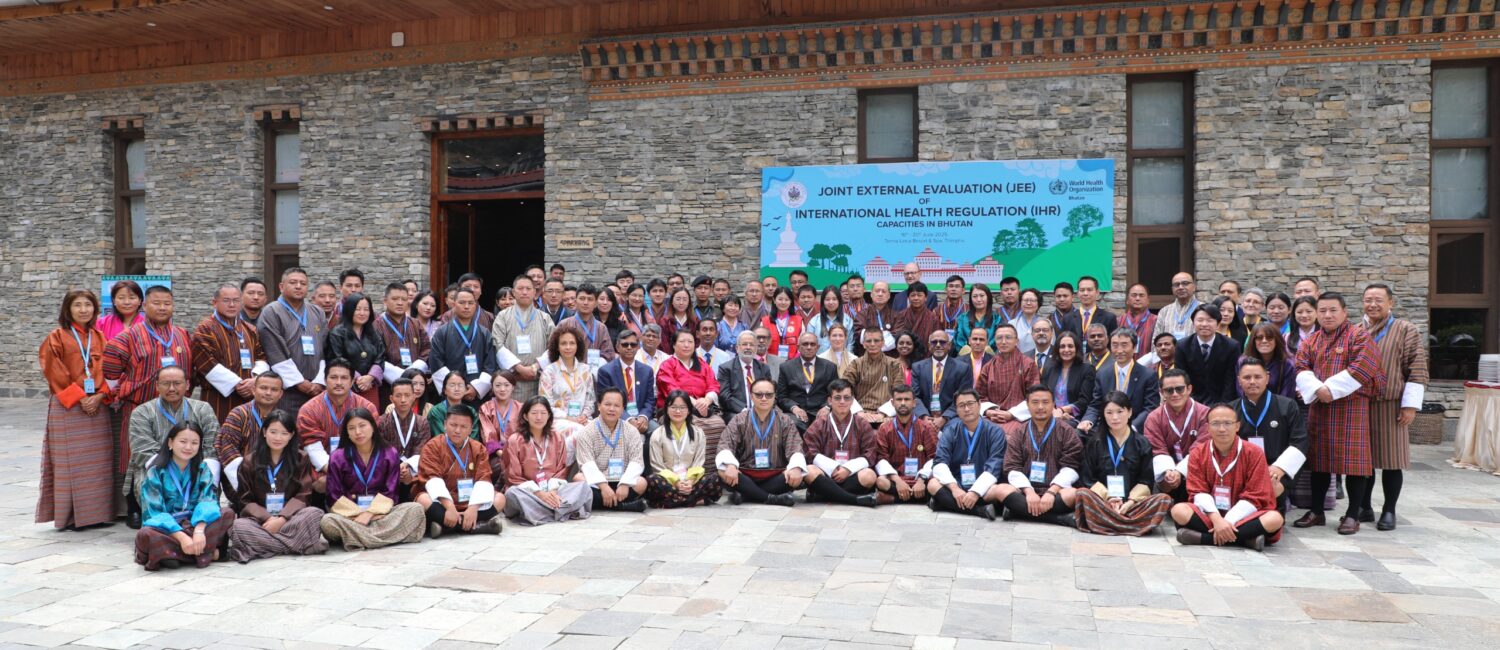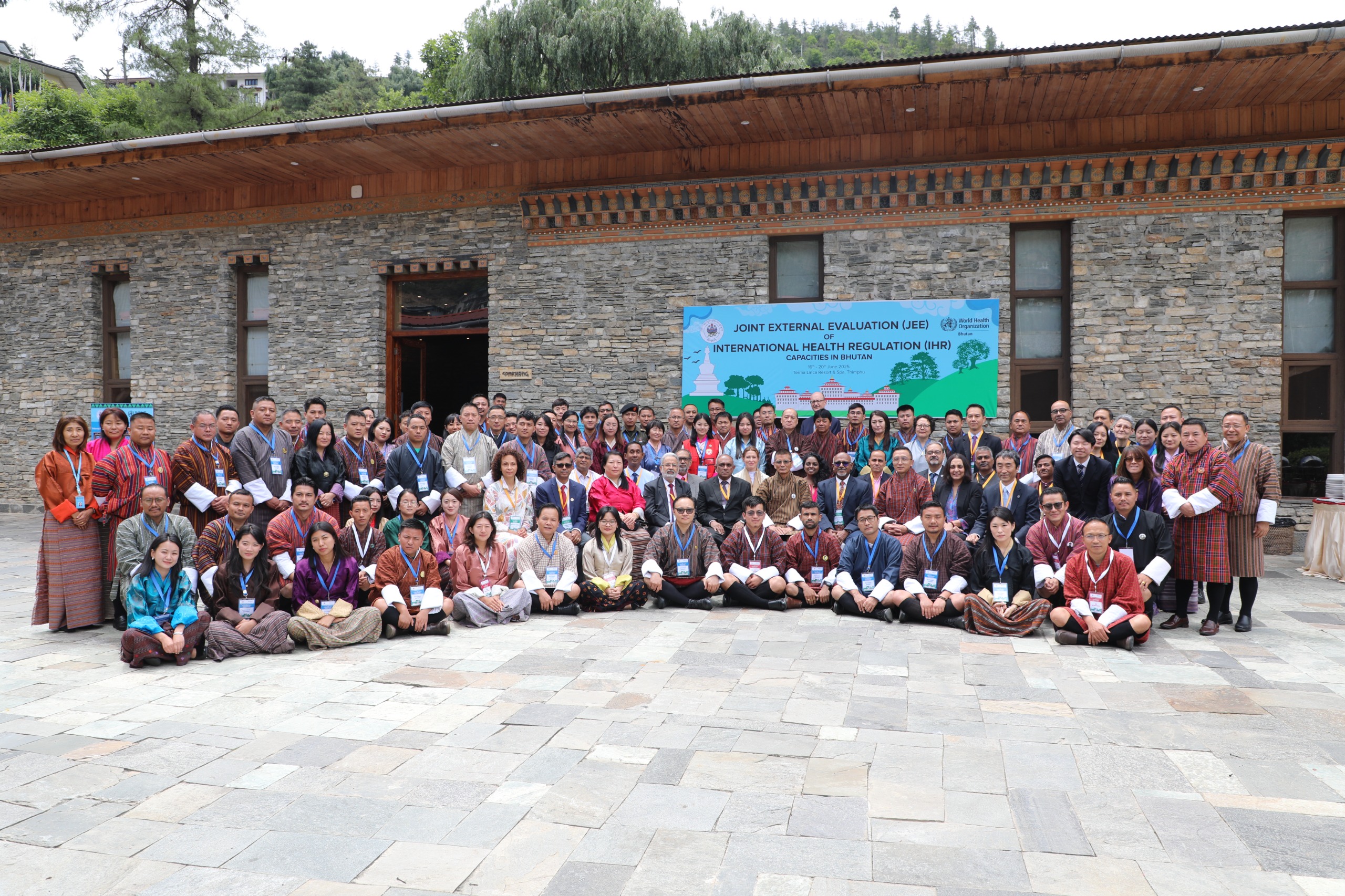
16 June 2025, Thimphu – The Ministry of Health, Royal Government of Bhutan, in
collaboration with the WHO Country Office, has officially commenced the Second Round
of the Joint External Evaluation (JEE) of core capacities under the International
Health Regulations (IHR 2005), starting today and will continue for next 4 days (until 20
June 2025).
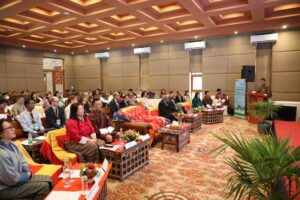 The JEE is a voluntary, collaborative, and multisectoral process coordinated by the World
The JEE is a voluntary, collaborative, and multisectoral process coordinated by the World
Health Organization (WHO) to assess a country’s preparedness to prevent, detect, and
respond to public health risks. Bhutan’s first JEE was conducted in 2017; this second round
reflects the country’s ongoing commitment to national and global health security while
striving for continuous improvement.
This week, 21 international experts, including those from Robert Koch Institute (RKI),
WHO Headquarters, WHO SEARO, WHO Country Office (India, Nepal), ADB, FDA
Indonesia, World Organisation for Animal Health (WOAH), India’s National Institute of
Disaster Management, Ministres of Health (Sri Lanka, India, Nepal) and Office of Atoms for Peace, Thailand, have joined national counterparts in Thimphu for an intensive five-
day evaluation mission. The external experts will engage with over 70 national technical experts representing more than 19 agencies, including ministries, departments, security
services, academic institutions, and key stakeholders in health security.
In preparation for this important mission, the Ministry of Health has undertaken a series of
comprehensive activities since 2024, including:
● A JEE orientation and technical review alongside the SPAR 2024 Workshop in
February 2025
● The First Multisectoral JEE Preparatory Workshop in April 2025
● And the Second Multisectoral JEE Preparatory Workshop, held from 12–13 June
2025, which involved detailed mock assessments of all 19 technical areas and 56 by the third edition of the JEE tool.
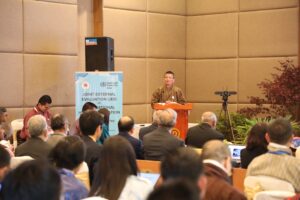 This collaborative effort demonstrates Bhutan’s proactive approach in fostering whole-of-
This collaborative effort demonstrates Bhutan’s proactive approach in fostering whole-of-
government and whole-of-society engagement in emergency preparedness. It also provides a valuable platform for cross-learning, technical dialogue, and strategic alignment with
international standards and best practices.
The Ministry acknowledges the tremendous support from all sectors and extends heartfelt
appreciation to the WHO and the international JEE team for their partnership and guidance
in this critical national undertaking. The findings and recommendations from the JEE
Mission will inform Bhutan’s future strategies in building a resilient, responsive, and
secure health system.
For media inquiries, please contact:
Health Emergencies Programme/
JEE-IHR Secretariat
CDD, DoPH
Ministry of Health, Bhutan
utshering@health.gov.bt/ uzangpo@health.gov.bt /
tandinwangmo0811@gmail.com / rgyalpo@health.gov.bt
17500270
